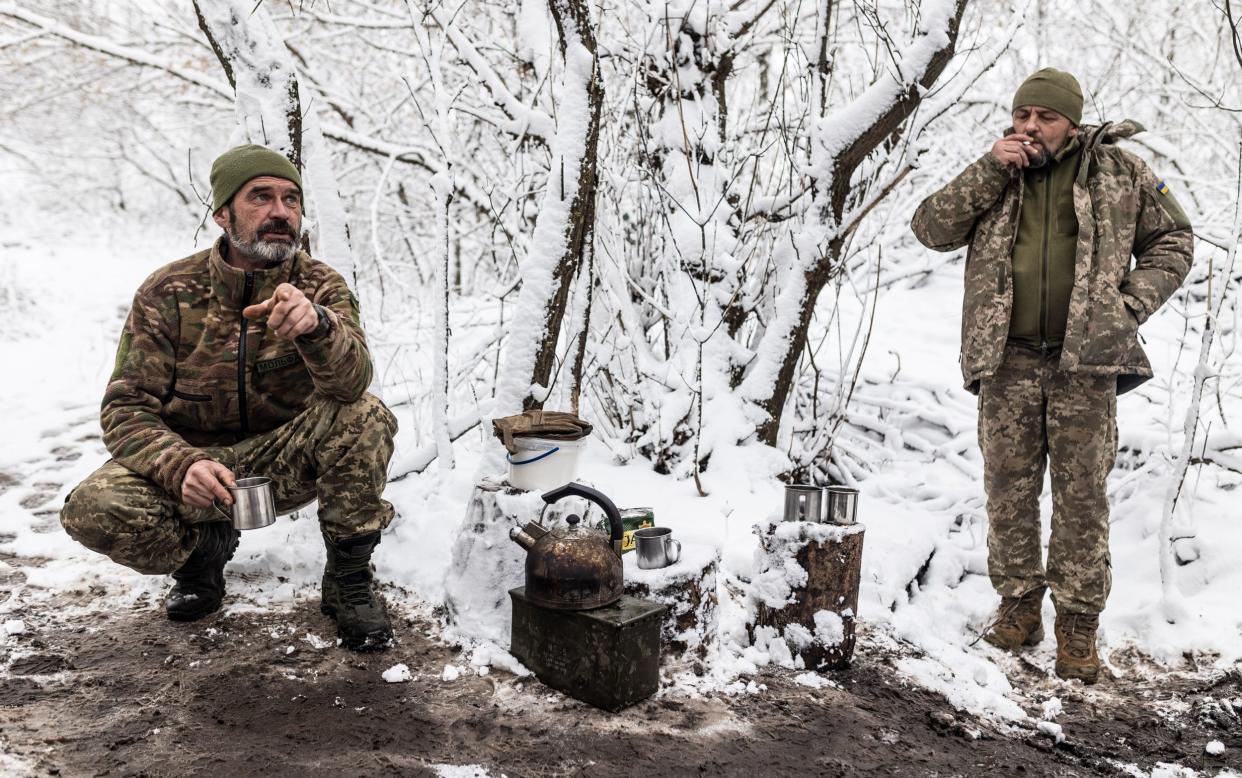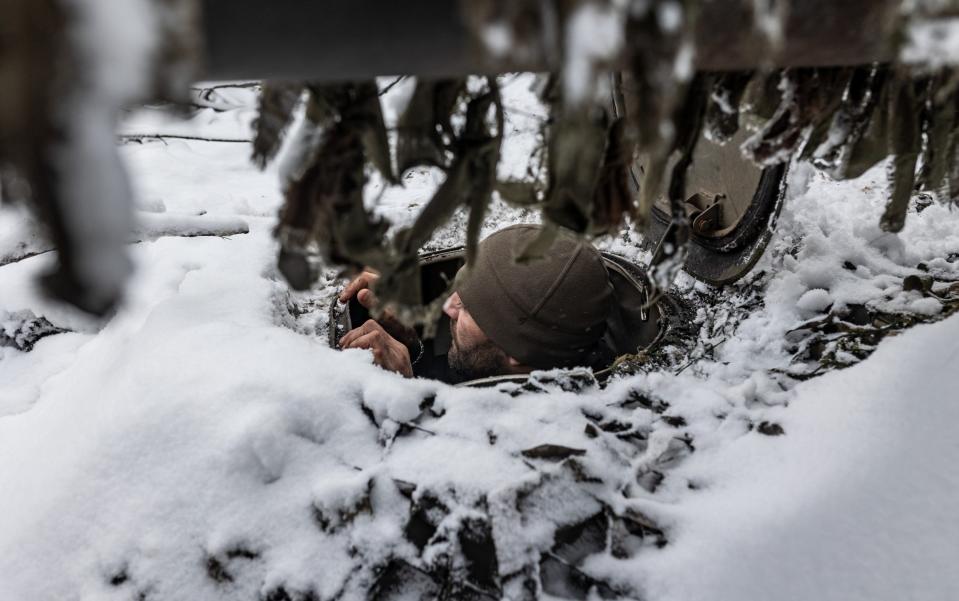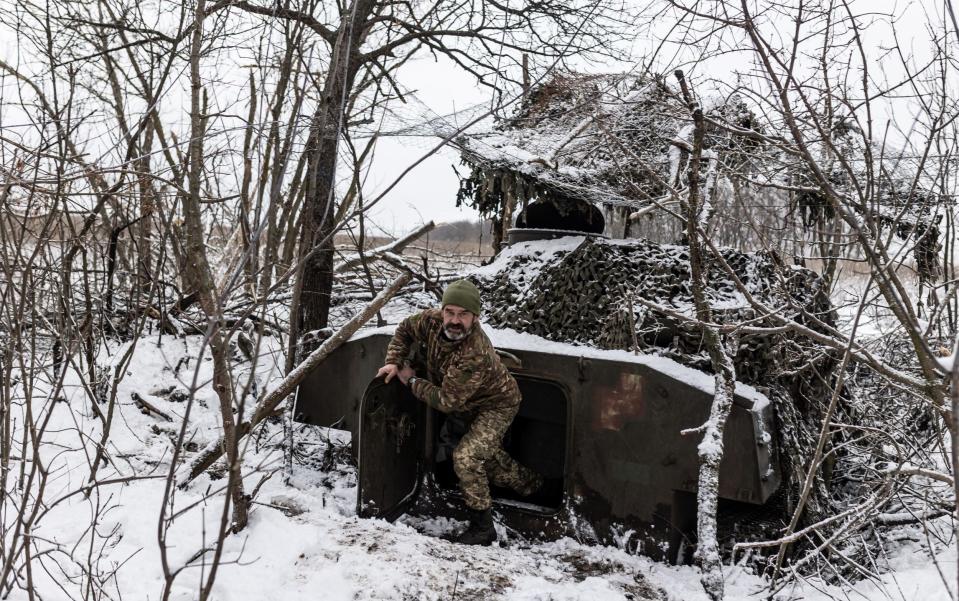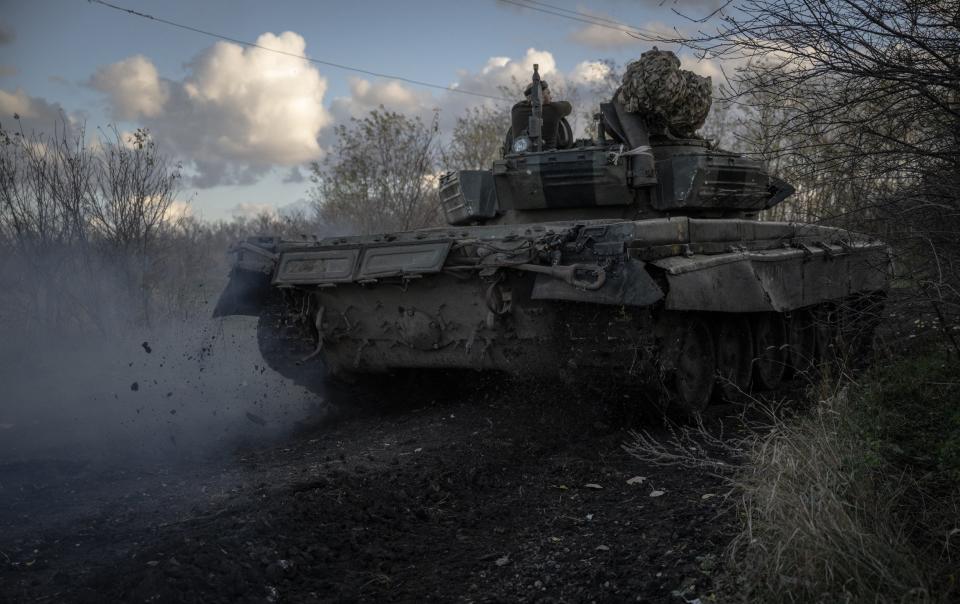Depleted Ukrainian forces fear they cannot win Russian ‘war of exhaustion’

Ukrainian soldiers say that they fear losing a “war of exhaustion” against Russia as Kyiv struggles to replenish its battle-weary forces.
Units on the front lines are commonly 20 to 40 per cent below strength as Ukraine counts the costs of its summer counter-offensive, a retired Ukrainian lieutenant general told The Wall Street Journal (WSJ).
It was hoped that Nato-trained brigades equipped with Western tanks would liberate swathes of territory occupied by Russia as part of the much-heralded push.
But in reality, while Ukrainian troops battered and bruised Russian forces and their logistics, the heavily fortified front lines have barely moved in months of brutal fighting.
Pte Bohdan Lysenko, of Ukraine’s 47th Brigade, told the WSJ: “We don’t have a chance playing [a] war of exhaustion with Russia.
“We need a fundamental change in our army.”

Pte Lysenko’s unit is defending the town of Avdiivka, in Ukraine’s eastern Donetsk region, with only 20 men.
The company began the summer with 120 men, many of whom are now dead, wounded or have been transferred away from the front line.
Among the 20 remaining are several replacements, most of whom are more than 40 years old, according to Pte Lysenko.
“We’re still motivated, but we’re exhausted,” Pte Oleksandr Siergeichikov, who has been defending Avdiivka since the spring of 2022 with Ukraine’s 110th Mechanized Brigade, told the WSJ.
Avdiivka, which lies about 16 miles from the Russian-occupied city of Donetsk, is surrounded by Russian-held territory to the north, east and south.
Once home to some 30,000 people, the town has been on the front line of the war since Russia’s initial 2014 Donbas invasion.
Russia has a population more than three times the size of Ukraine, meaning that it can strategically afford to lose thousands of soldiers to make marginal gains before replacing them.

The Kremlin sent tens of thousands of men to their deaths in “meat waves” to capture Bakhmut, about 30 miles north of Avdiivka, in a 10-month battle that featured some of the most ferocious fighting of the war.
Kyiv has meanwhile sought to safeguard its troops, arguing that the Ukrainian leadership values the lives of its people.
Cpl Mykhailo Kotsyurba, a Bradley commander in the same company as Pte Lysenko, said of Moscow’s tactics: “They’re not stupid. It’s a strategy.
“They look for weak points, then go there. We don’t have enough ammunition, but they have enough people.”
Britain, the United States and Ukraine all estimate that Russia has suffered more than 300,000 casualties – including those killed or wounded – since Vladimir Putin ordered the invasion in February last year.
The Ukrainian government, which has voiced concerns that vital military support from the West is dwindling, does not release such numbers for its own forces.
But a group led by historians and researchers has estimated that approximately 30,000 Ukrainian soldiers have died and a further 100,000 have been injured.

Ukraine’s ranks, once made up of highly motivated volunteers, are now being bolstered by briefly trained conscripts.
Many of the losses are blamed on Soviet-trained commanders whose rigid tactics have not allowed those forces with Western training to flourish on the battlefield.
This week Volodymyr Zelensky, the Ukrainian president, acknowledged the struggles of his military, after opting to sack the commander of the country’s medical forces.
Mr Zelensky demanded rapid operational changes to “medical support” for Ukraine’s troops following the dismissal of Maj Gen Tetiana Ostashchenko amid criticism about the poor quality of supplies available to soldiers.
He also said that Nato-standard communications would have to be introduced for Ukraine to recapture more occupied territory from Russia.

